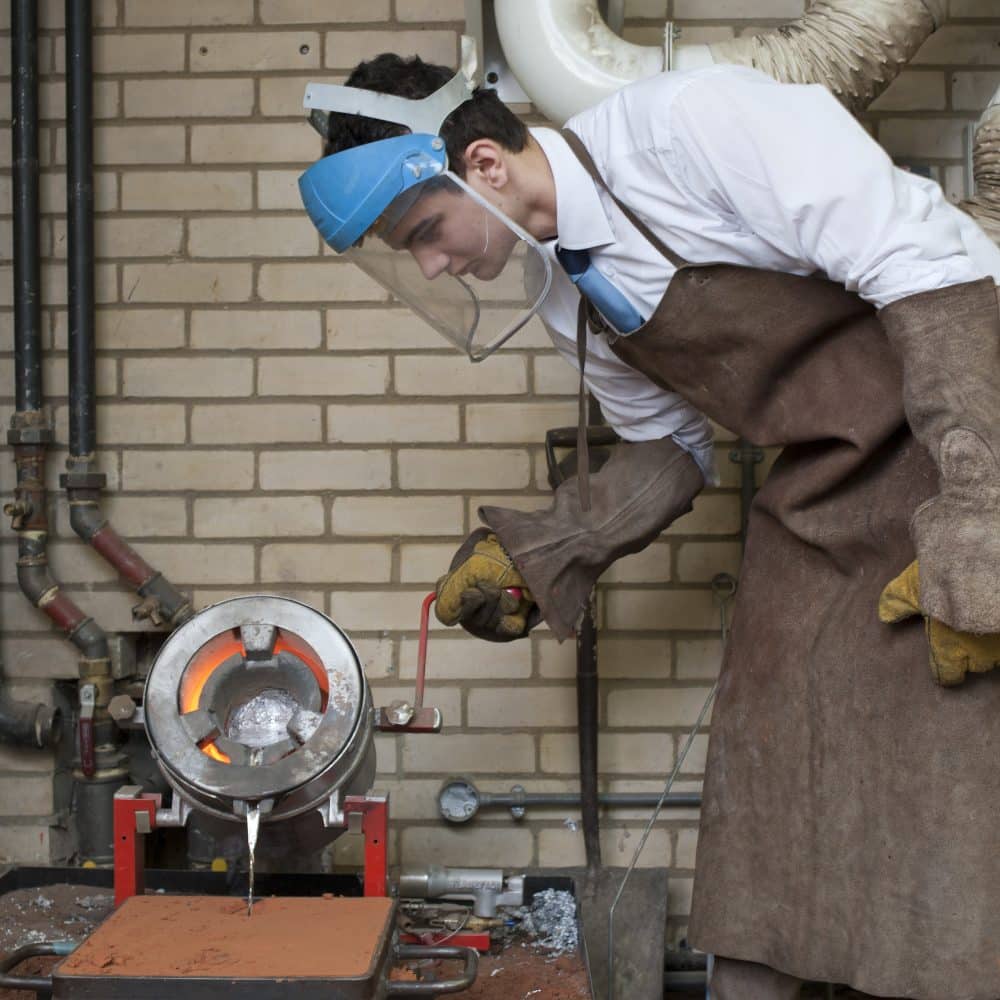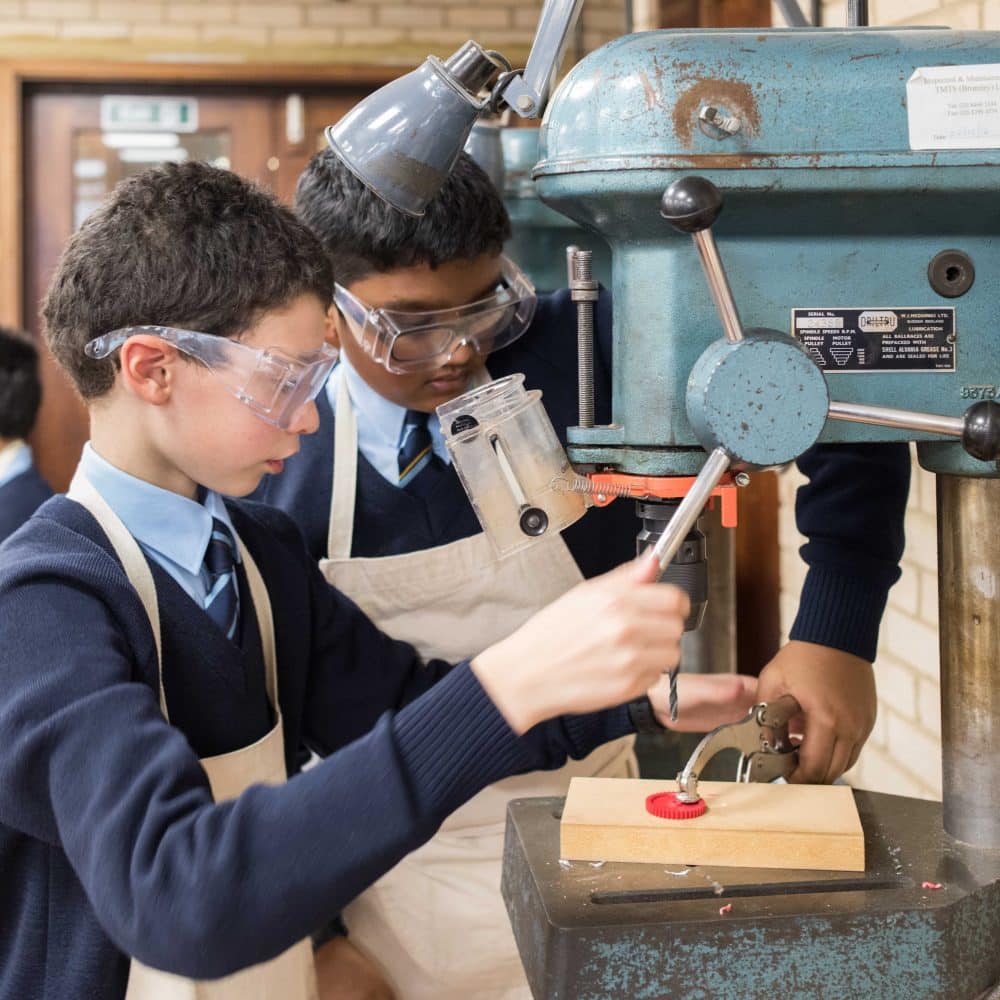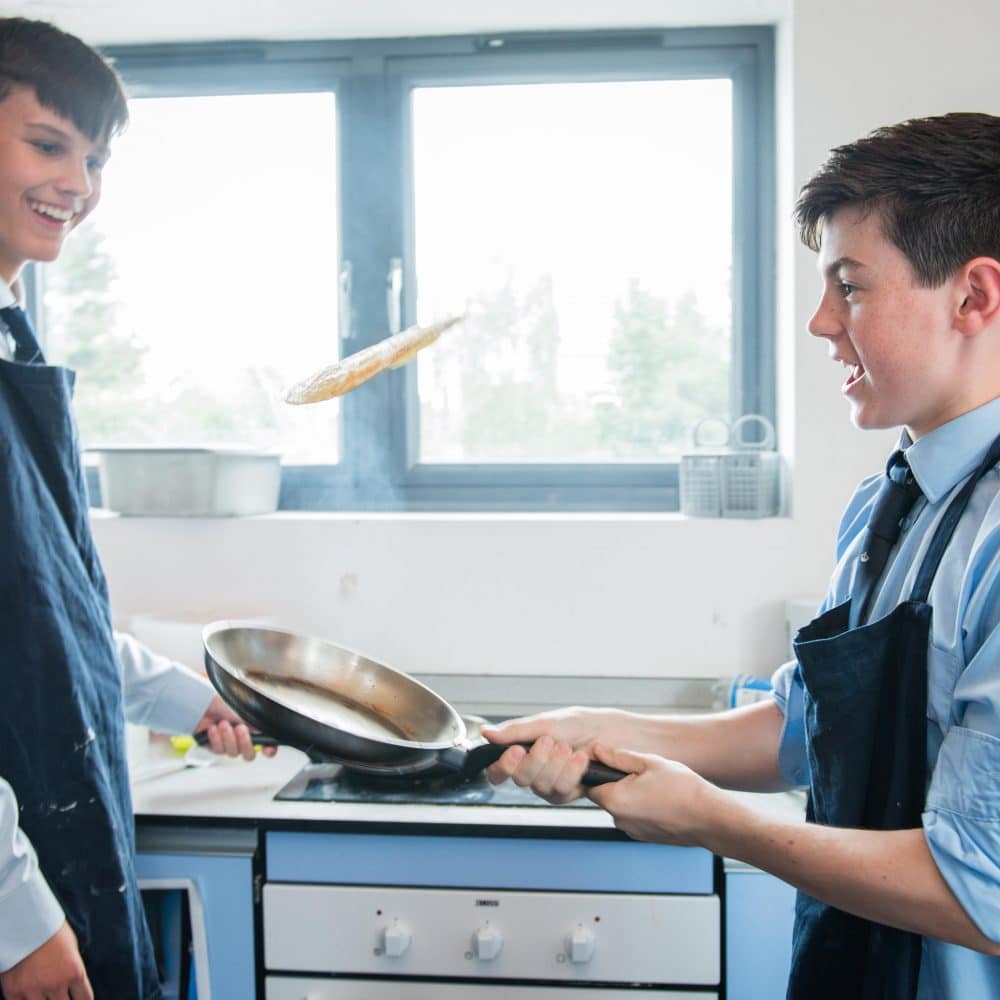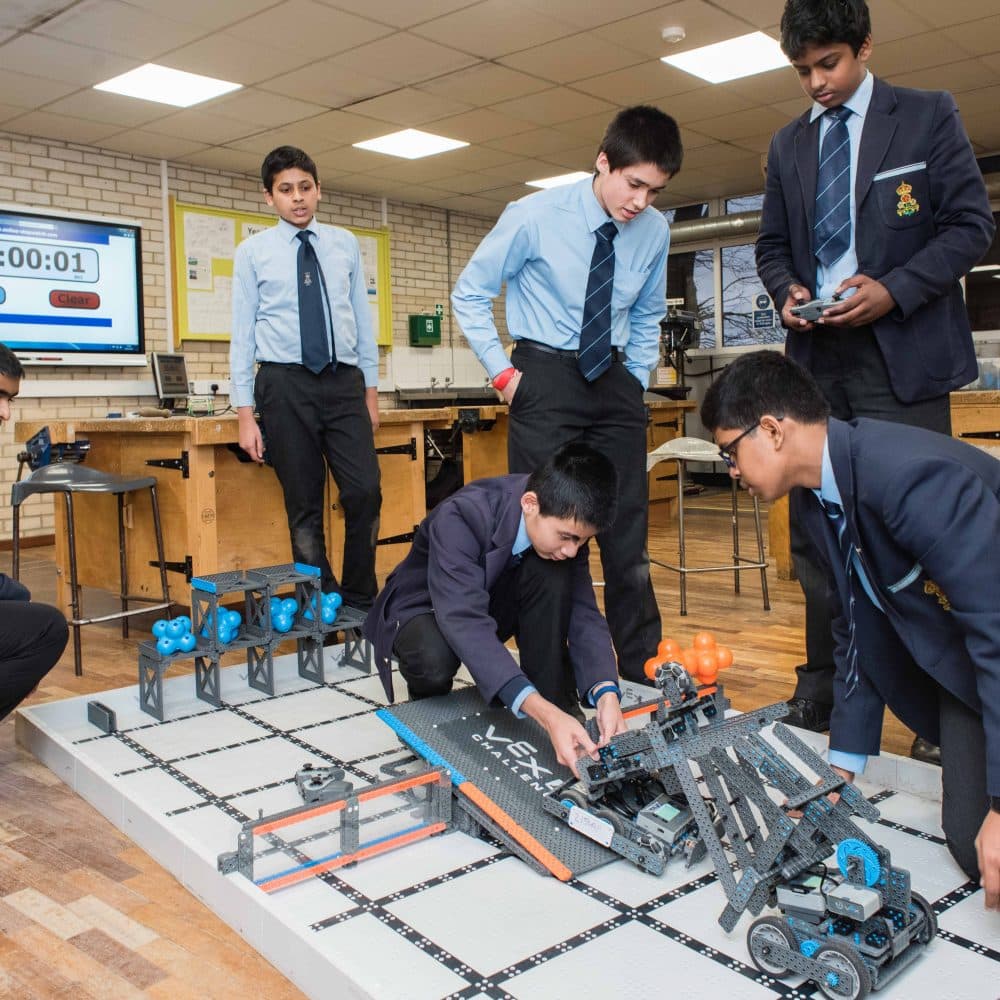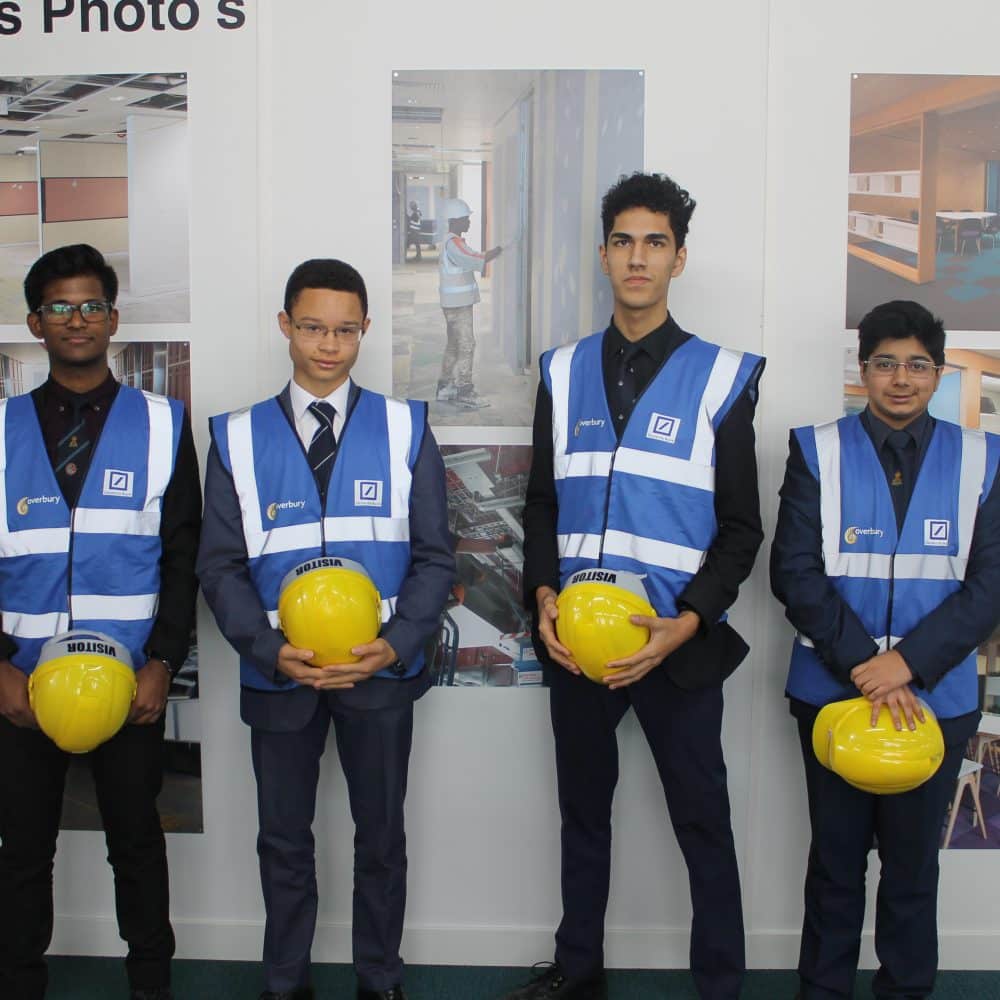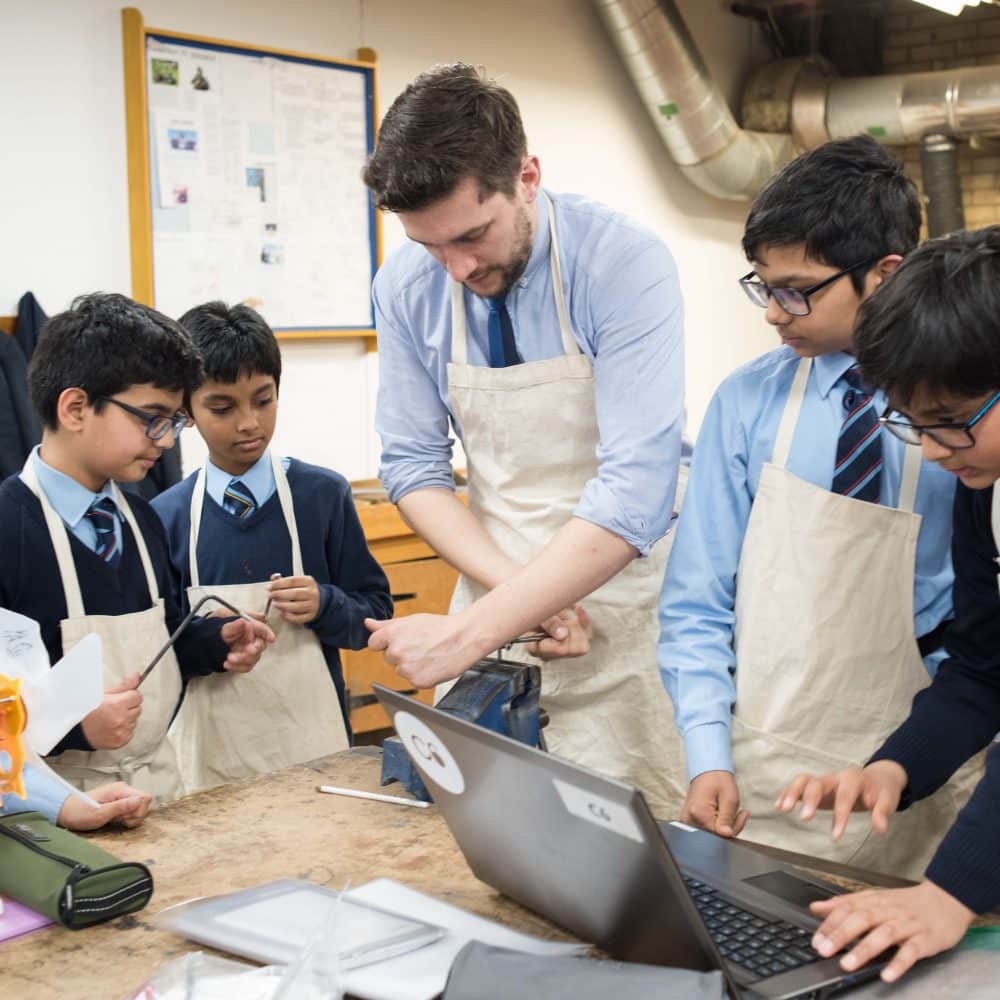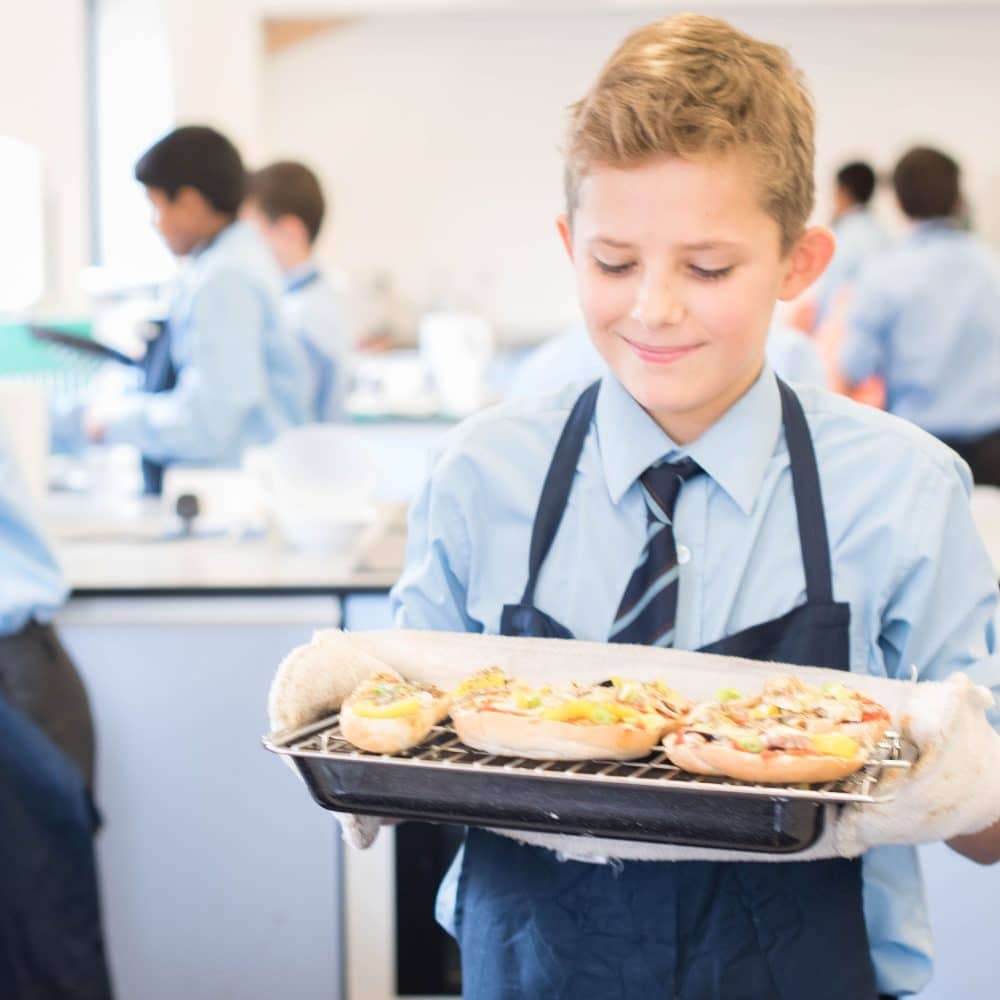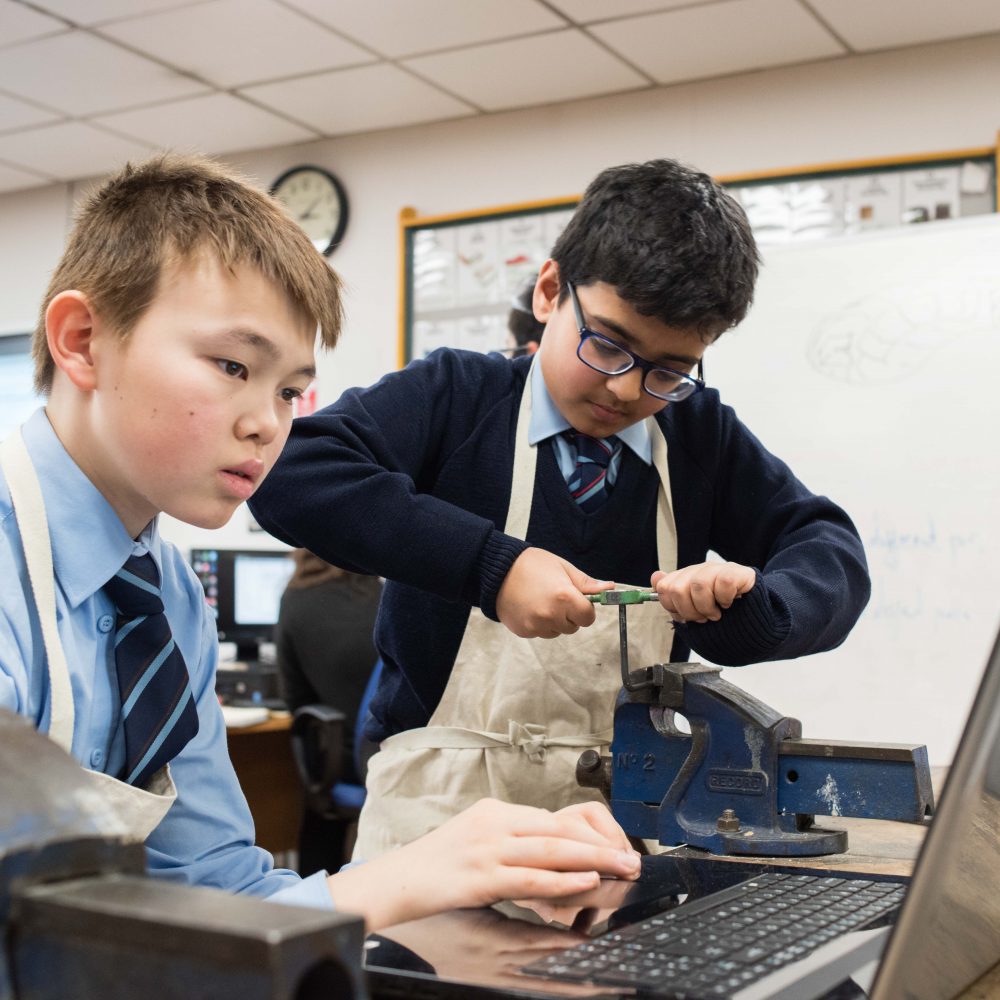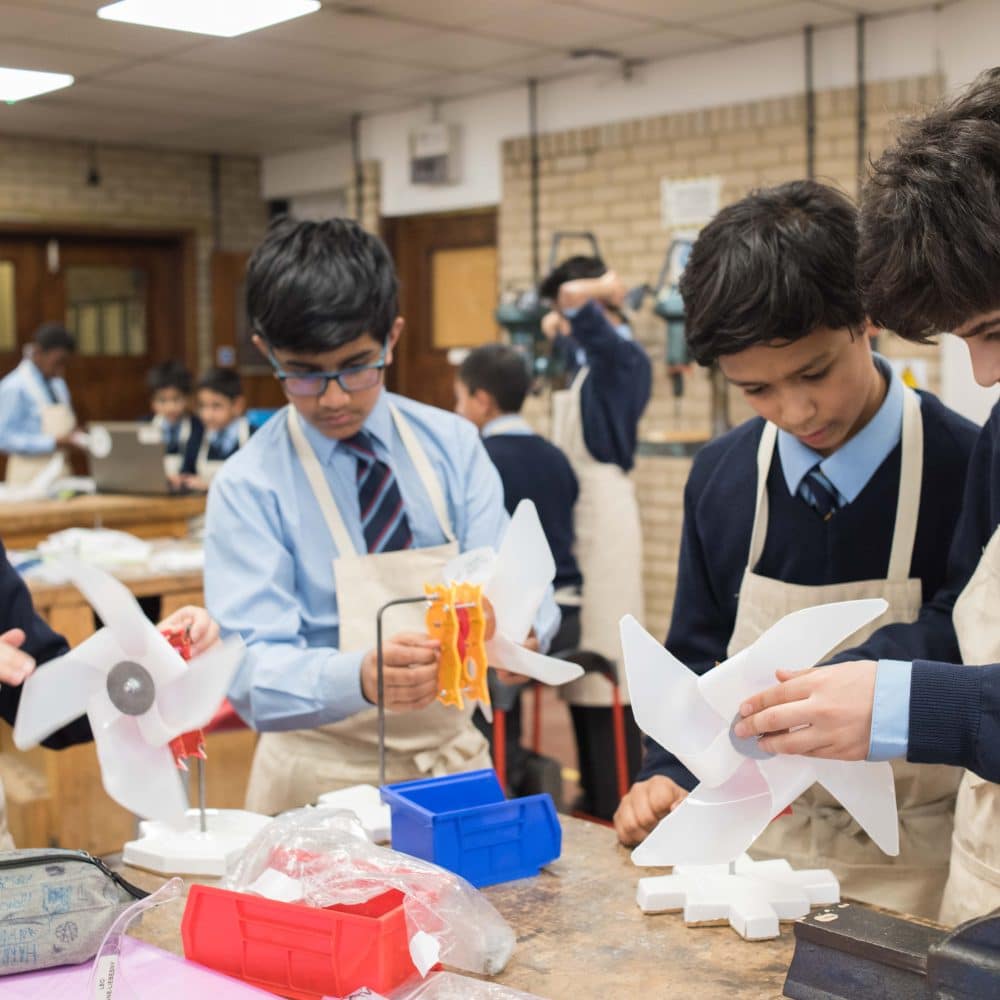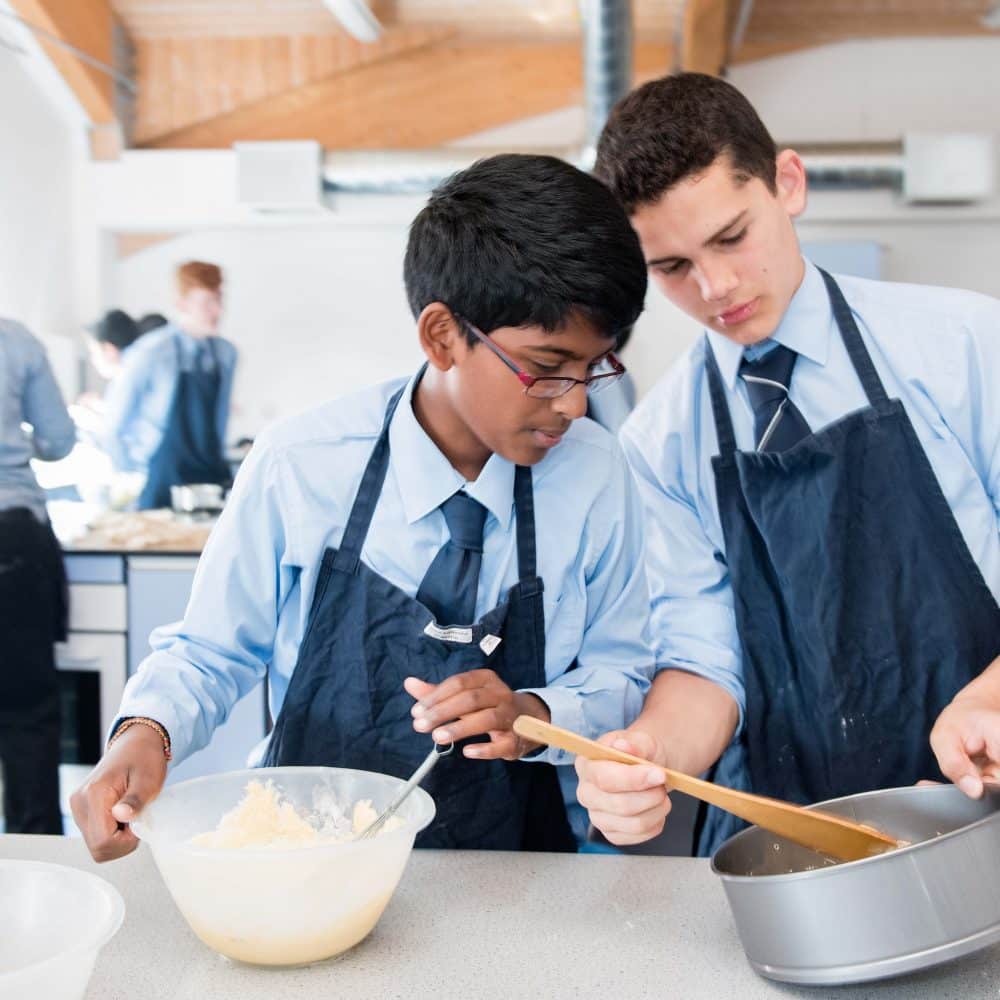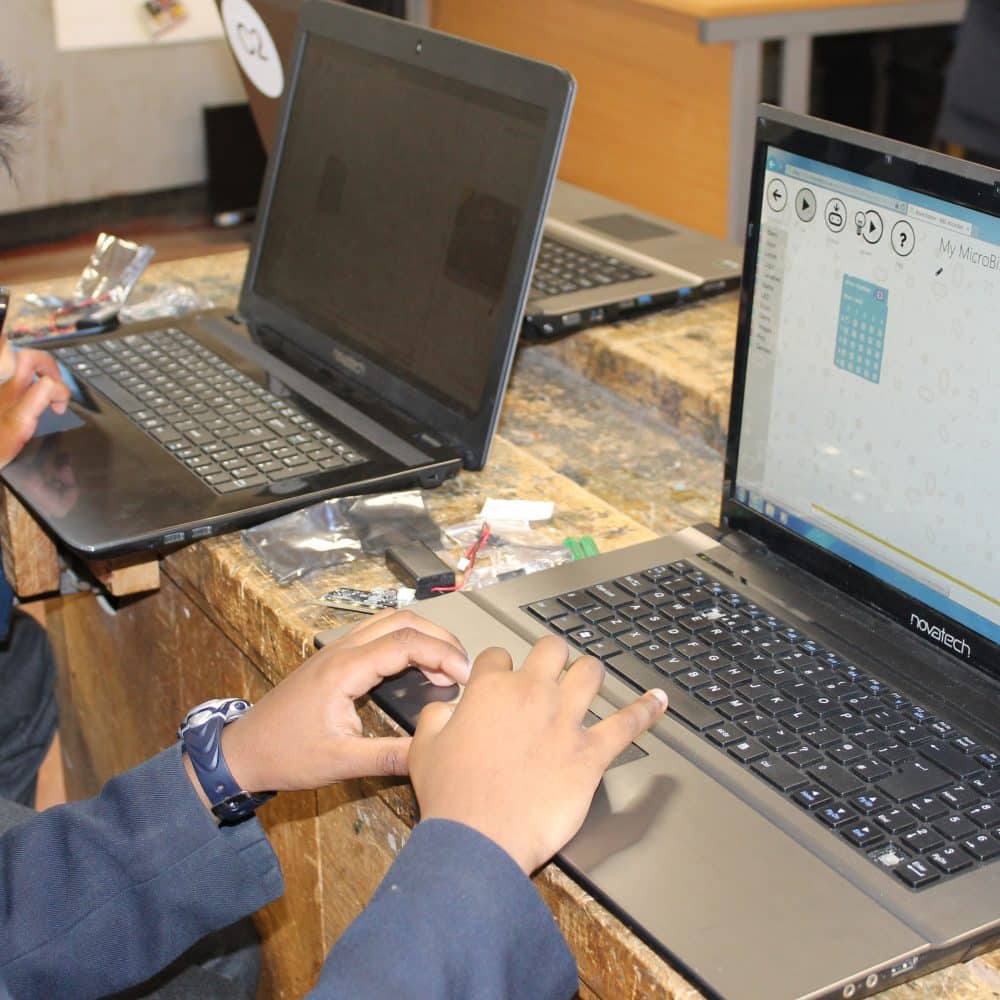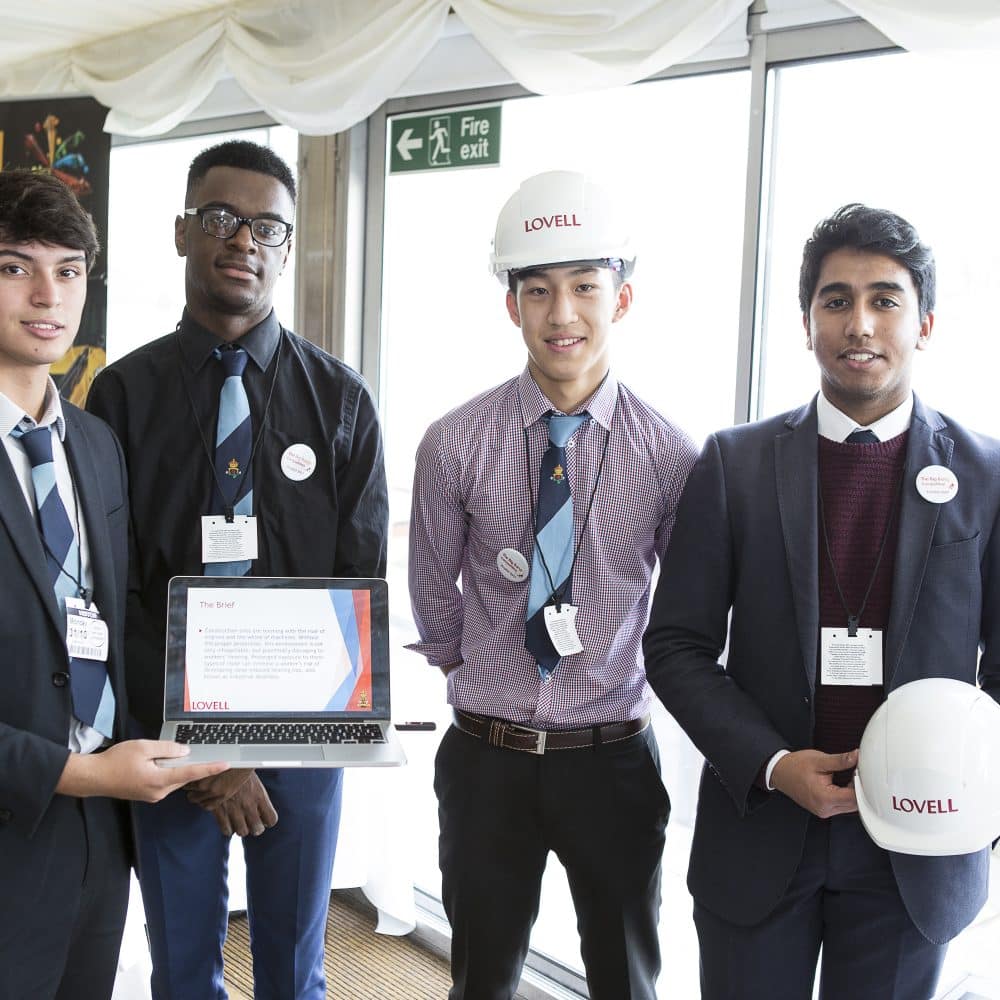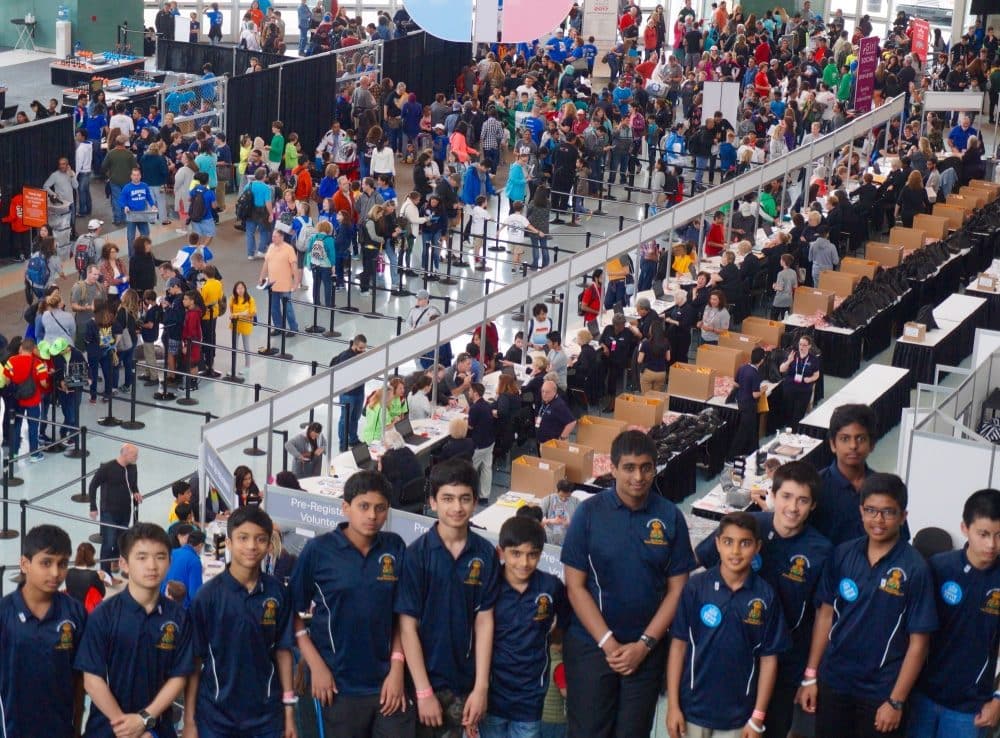Technology
Technology is about the future; it is about changing the world around us to what it might be, or should be. We tell our pupils: “The only limit here is your own imagination; we will help you discover the rest.”
Since technology is ever-changing, there is great scope for introducing ideas through independent research and development based on one’s own inspiration and individuality. The department strives to empower the boys by helping them develop the skills and confidence needed to be at the forefront of this change.
Our projects assist that development in a number of ways, from using cutting edge-technology to create ground-breaking prototypes, to reinforcing the principles of other STEM (Science, Technology, Engineering, Mathematics) subjects in a creative environment. Projects across all year groups are taught with a combination of both theory and practical work.
From their first day in Year 7, we encourage boys to experiment with some very advanced software. By the time a pupil reaches his A-level studies, he may be creating unmanned aerial vehicles (drones), electronic microscopes, moisture-detecting irrigations systems or music players, to name just a few achievements in recent years.
We hope to nurture the leaders of technological advancement in the future, developing the skillsets and frameworks of analysis that our boys will need. Pupils begin by gaining a basic, conceptual grasp of technological systems and theories; they progress to a very detailed and practically useful understanding of the applications of those theories. We always look at the task at hand from the perspective of a professional engineer, designer, scientist or researcher. Boys are placed into realistic situations encountered by a professional, whether that be meeting deadlines, presenting one’s ideas, discussing solutions with one’s peers or evaluating progress.
All of this takes place in a fun and safe environment which allows the boys to thrive. We approach every project differently, with staff offering bespoke feedback to boys on their work. Pupils are encouraged to delve deeper into their designs, and competition helps in the push for excellence, whether that is against current classmates or through taking the achievements of past pupils as a mark to be surpassed. We want boys to feel a sense of achievement, and encourage every student of Technology, regardless of ability, to create project work driven by the intrinsic motivation which comes from pursuing one’s own interests, passions and ideas.
Many who have graduated from our workshops comment on the usefulness of their experience at university in subjects as diverse as, but not limited to, Aeronautical Engineering, Mechanical Engineering, Design Engineering, Computer Programming, Physics and Industrial Engineering.
The opportunities QE provides to work with technologies such as CNC-machining, laser-cutting, 3D-printing, electronic systems, programming, turning & lathe work, Computer Animated Design & Manufacture (CAD/CAM), simulation and realistic concept-sketching mean that, as undergraduates, Elizabethans are often ahead of the pack.
In the department, we are also constantly evolving our use of technology in our teaching and see ourselves as being a bringer of innovation and change to this area of education. We use animation, design, simulation and testing software, and we have also brought in video-editing, marketing and recording software, while virtual and augmented reality is also in our sights.
Extra-curricular opportunities abound. There are 3D-printing, drawing and rendering, micro-bit and automotive technology clubs. We also have a range of clubs and activities through which we enter national competitions, such as the Engineering Education Scheme in Year 12 (which has seen QE accrue professional standard awards for health & safety and innovation in the construction industry), the BP STEM Research challenge, Shell Challenge and VEX World Robotics Championships.
Old Elizabethans: Highly successful AI entrepreneur still following his dreams
"A innovation-mad entrepreneur, with an aim to build technology that simplifies the lives of everyday users and increases the penetration of information technology to those who do not have it today," – that is how Sachin Dev Duggal describes himself.
And Sachin (OE 1994-2001), who has already led three-multi-million dollar businesses and studied at three of the world’s leading universities (Imperial College London, Massachusetts Institute of Technology (MIT) and Stanford in California), shows no sign of easing up in his ambitions. Now based in San Francisco, the artificial intelligence expert and entrepreneur loves ideas, "both tech and non-tech". He adds: "Dreaming is what gets you up in the morning. What Hollywood dreams, we build 20 years later."
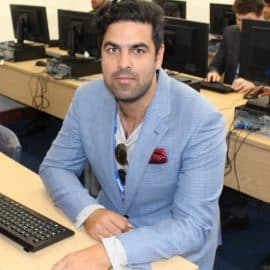
Old Elizabethans: Making the world a brighter place
From healthcare products to large-scale, outdoor light installations for Selfridges department store in London, Justin Pither (OE 1999-2006) has used his skills and interests in projects he finds both stimulating and of value to society.
His work as Chief Technology Officer for Aergo – a start-up company was founded by students from a course shared by Imperial and the Royal College of Art - saw him at the forefront of the development of an innovative hi-tech seating system designed to improve the posture of children with disabilities.
Justin, who secured his Master’s degree from Imperial College London in 2015, joined Aergo the following year. He has always been interested in design and construction, even fixing his own equipment during the five years he spent touring with a band.

Head of Technology: Michael Noonan
Mr Noonan has worked at QE for almost all his professional life. Graduating in September 2013 from Limerick, he came to the School in December that year. Appointed Head of Technology in 2017, he has been closely involved in expanding extra-curricular activities in Technology.
“I love the challenge that QE affords our students. We are blessed with many gifted mathematicians and physicists; however, talent alone will only get you so far. In Technology, we aim to nurture the perseverance, hard work and determination required to make it to the top by allowing boys to apply the complex mathematical and scientific principles learned in the classroom to real-life situations.”
He appreciates the gratitude shown by the boys after an enjoyable or interesting lesson and “the voracious and infectious enthusiasm” they evince when engrossed in a project.
Mr Noonan’s own specialisms include Computer-Aided Manufacture/Rapid Prototyping (using 3d routers, laser cutters & 3D printers). “I am also constantly looking to develop in cutting-edge robotics and coding to support our VEX Robotics teams, as well as students incorporating complex electronics into their project work.”
Mr Noonan is a mentor with School Direct – the schools-based teacher-training scheme – and a mentor to NQTs (Newly Qualified Teachers).

Upper School pupil: working with the resources available
“I enjoy Technology’s problem-solving aspect,” says Amin Mohamed. He has found that the teachers are particularly encouraging and have helped him to understand the topics and the projects well. “I enjoy trying to work out how to make something with the resources available to me and I try my hardest to work within the scope of my ideas.”
Amin is involved in a broad range of extra-curricular activities which reflect his wide-ranging interests. He participates in table-tennis, Jumu’ah Prayer, the Chemistry Society and Eton Fives. He enjoys all the STEM subjects and is keen to follow a career in either medicine or biochemistry, but has not finally settled on his choice of A-levels.

Lower School pupil: “Fun practicals, amazing theory”
Avanish Loganathan is a Technology enthusiast who enjoys all aspects of the subject. “The practicals are really good fun and the theory parts are amazing, too. I am always learning new things. I have definitely made progress in the subject, mostly thanks to my Technology teacher, Mr [Sean] Kelly. He is such fun and is a super teacher. He makes the lessons so enjoyable and I owe him such a lot for the amazing things he has taught me.”
Out of lessons, Avanish is a keen member of the School’s Manga Club. He believes the skills he has learned in Technology, especially isometric drawing, have helped him to draw his anime characters. He is thinking of studying Technology at A-level as he is interested in a possible career in architecture.

In the workshop
